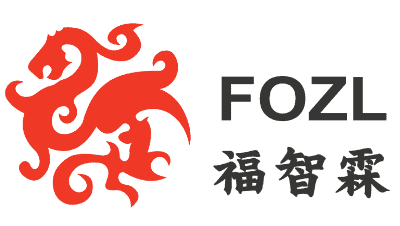[vc_row][vc_column][vc_single_image image=”30469″ img_size=”800×500″ alignment=”center”][vc_column_text]
Singapore company’s EGM:
The EGM is a company meeting that is held when shareholders’ approval is required for important business matters.
Who can request a special shareholder meeting?
Board members in Singapore may convene an extraordinary general meeting.
There are two general ways of convening:
- Any member holding at least 10% of the total voting rights (shares) may notify the directors of the company to convene an extraordinary general meeting;
- Two or more board members with at least 10% of the issued shares may notify the board of directors to convene an extraordinary general meeting.
The Singapore courts have stipulated some recognized circumstances that cannot order an extraordinary general meeting,
include:
- Failure to meet legal requirements;
- The company’s daily management is at an impasse
How to notify the convening of an extraordinary shareholder meeting
In order to successfully hold the EGM, the company is obliged to send written notice to the members of the EGM.
For private companies, the minimum notice period for all meetings is 14 days . However, for public companies , special resolutions require a 21-day notice period, and the company’s articles of association may provide for a different, longer notice period.
| Notice period for private company’s extraordinary shareholders meeting | Public company extraordinary shareholders’ meeting notice period | |
| Ordinary resolution | 14 days | 14 days |
| Special resolution | 14 days | 21 days |
[/vc_column_text][vc_row_inner][vc_column_inner width=”1/2″][vc_column_text]Special resolutions
Special resolutions are formal decisions that require a minimum of 75% of the votes cast at the meeting.
For listed companies, the meeting must be notified in writing 21 days in advance. For private companies, 14 days’ notice must be given in writing.
However, if members with at least 95% of the voting rights agree, a meeting can be held in a shorter period of time.
In addition, the company must submit copies of all special resolutions to ACRA. When the decision to be made is particularly important, special resolution is needed.
Examples of decisions under which the company must pass special shareholder resolutions under the Companies Law include:
-Modify any provisions in its charter
-change its name
-reduce capital[/vc_column_text][/vc_column_inner][vc_column_inner width=”1/2″][vc_column_text]Ordinary resolution
Ordinary resolutions are formal decisions passed at the meeting by a simple majority (i.e. more than 50%) of the votes. The meeting must be notified in writing 14 days in advance. However, if members with at least 95% of the voting rights agree, a meeting can be held in a shorter period of time.
An example of a company’s decision to pass ordinary resolutions under the Company Law:
-Removal of directors before term expires
-Appointment or reappointment of directors over 70 years of age
-Deciding that a general meeting is the company’s annual shareholder meeting[/vc_column_text][/vc_column_inner][/vc_row_inner][vc_column_text]
How to shorten the notification period?
If it is found that the notice period needs to be shortened, the board members who have at least 95% of the total voting rights (shares) must agree.
The notice must provide sufficient information on the business matters proposed by the EGM . The date, place and time, including the meeting, should be clearly stated in the notice. The notice should also include the agenda of the EGM to inform members of the business matters to be discussed at the meeting.
Such notices can be sent by registered mail. It can also be announced via email or on the company’s website. However, the company’s articles of association need to clearly stipulate that such electronic transmission methods can be used.
Quorum to convene an extraordinary general meeting
To convene an extraordinary general meeting, a quorum must be reached . A quorum is the minimum number of members entitled to vote must be present during a meeting. Most company constitutions specify a quorum for meetings.
If the company’s articles of association do not specify a quorum, the minimum number of members who must be present in person is two.
Resolution passed on extraordinary shareholders’ meeting
The voting results of the EGM are usually disclosed at the end of the meeting. Therefore, it will be known whether the resolution is passed before the end of the EGM.
However, in some cases, some measures need to be taken after the EGM to make the resolution passed.
For example, by passing a special resolution at an extraordinary general meeting, the company is voluntarily wound up (closed). A copy of the special resolution must be submitted to the Accounting and Corporate Regulatory Authority (ACRA) within 7 days. In addition, notice of the same resolution must be published in at least one newspaper in Singapore within 10 days. Only then can directors appoint a liquidator to begin a voluntary liquidation process.
[/vc_column_text][vc_column_text]
Singapore FOZL Group Pte. Ltd.
Singapore Accounting and Corporate Regulatory Authority licensed corporate advisory firm
Singapore company registration
Trademark Registration Business Consultant Serviced Office
6 Raffles Quay, # 14-02, # 14-06, Singapore 048580[/vc_column_text][/vc_column][/vc_row]


